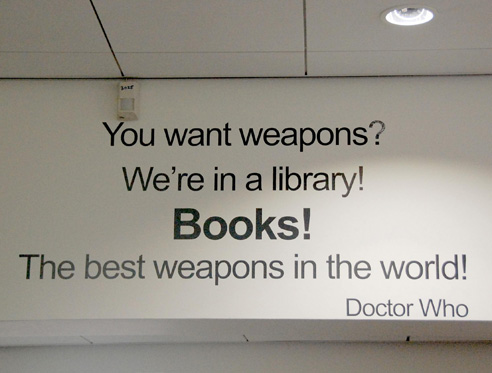Crossing Class and Culture: Community Building and Social Capital in Public Libraries
A Lunchtime Seminar Series Summary
By Jen Li
20 July 2012
On July 3 2012 HDR candidate Jen Li spoke at the July session of the Lunchtime Seminar Series 2012, presenting ‘A Kind of Paradise: The Changing Spaces of Public Libraries’.

The public library has multiple identities. It is at once a place for community, a place for learning, a place for entertainment. Public libraries are institutions that have traditionally been central to civic and public life, a public space for promoting and preserving culture and literature as well as developing a community and sense of place. These roles, and particularly the continued relevance of these institutions, are in doubt, at least in certain locations. For example, in the UK, the existence of some libraries is under threat amidst budget cuts and threatened closures and amalgamations. These doubts tie into debates about the role of the state and the privatisation of public goods: Do states have an obligation to provide public libraries? Can this obligation or responsibility be transferred to the private sector or the public? Furthermore, greater ease of access to information through the use of the internet and search engines, as well as the digitisation of print media, challenges the traditional roles of the library as a source of information and a repository of print media.
My PhD research will respond to these issues by investigating public libraries in Sydney, Australia. I plan to conduct fieldwork at one or more case study libraries, and conduct interviews with librarians from additional libraries to allow for breadth and depth in the research. In the case study library (or libraries), I aim to conduct interviews with staff and patrons, undertake participant observation, and analyse any secondary data available such as reports or local history documents.
This research has two related aims. Its first aim is to trace the history and geography of the case study library: when and why it was built, and where it was built in relation to the rest of the city and other civic institutions such as the town hall and the council offices. Its second aim is to examine libraries as places of community and social capital, and how new technologies are affecting spaces and interactions within libraries. The primary objective is to answer questions of what the modern public library is, what it does, and why it is important (if indeed it is).